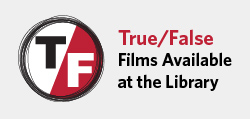Below I’m highlighting some nonfiction books coming out in March. All of the mentioned titles are available to put on hold in our catalog and will also be made available via the library’s Overdrive website on the day of publication in eBook and downloadable audiobook format (as available). For a more extensive list of new nonfiction books coming out this month, check our online catalog.
Top Picks
“Forager: Field Notes for Surviving a Family Cult: A Memoir” by Michelle Dowd (Mar 7)
As a child, Michelle Dowd grew up on a mountain in the Angeles National Forest. She was born into an ultra-religious cult — or the Field as they called it — started in the 1930s by her grandfather, a mercurial, domineering, and charismatic man who convinced generations of young male followers that he would live 500 years and ascend to the heavens when doomsday came. Comfort and care are sins, Michelle is told. As a result, she was forced to learn the skills necessary to battle hunger, thirst, and cold; she learned to trust animals more than humans; and most importantly, she learned how to survive in the natural world. At the Field, a young Michelle lives a life of abuse, poverty, and isolation, as she obeys her family’s rigorous religious and patriarchal rules — which are so extreme that Michelle is convinced her mother would sacrifice her, like Abraham and Isaac, if instructed by God. She often wears the same clothes for months at a time; she is often ill and always hungry for both love and food. She is taught not to trust Outsiders, and especially not Quitters, nor her own body and its warnings. But as Michelle gets older, she realizes she has the strength to break free. Focus on what will sustain, not satiate you, she tells herself. Use everything. Waste nothing. Get to know the intricacies of the land, like the intricacies of your body. And so she does. Using stories of individual edible plants and their uses to anchor each chapter, “Forager” is both a searing coming-of-age story and a meditation on the ways in which understanding nature can lead to freedom, even joy.
“The Book of Animal Secrets: Nature’s Lessons for a Long and Happy Life” by David B. Argus, MD (Mar 7)
Mother nature has a lot to teach us, if only we open our eyes. Pigeons and dolphins offer creative strategies for preserving our memories and warding off dementia, while squirrels and pigs harbor secrets for managing chronic pain. Rhinoceroses demonstrate the subtle power of our environments — and how to exercise better — while chimps have surprising parenting tips, not to mention great diet advice. Studying elephants has unlocked insights into preventing cancer, and we can look to giraffes for solutions to cardiovascular issues. Ants reveal the unusual benefits of collaboration and altruism, dogs are masterful mentors in living the good life, prairie voles hold clues to connection, and hitchhikers from our evolutionary past may bring us to the edge of immortality. In , visionary physician and biomedical researcher David B. Agus, MD, explores all these ways — and more — that we can harness the wonders of the animal kingdom in our own, very human lives. Filled with lively storytelling and astonishing practical takeaways, this revelatory guide will have you rethinking what’s possible for your health and wellbeing — now and for years to come.
“Poverty, by America” by Matthew Desmond (Mar 21)
The United States, the richest country on earth, has more poverty than any other advanced democracy. Why? Why does this land of plenty allow one in every eight of its children to go without basic necessities, permit scores of its citizens to live and die on the streets, and authorize its corporations to pay poverty wages? In this landmark book, acclaimed sociologist Matthew Desmond draws on history, research, and original reporting to show how affluent Americans knowingly and unknowingly keep poor people poor. Those of us who are financially secure exploit the poor, driving down their wages while forcing them to overpay for housing and access to cash and credit. We prioritize the subsidization of our wealth over the alleviation of poverty, designing a welfare state that gives the most to those who need the least. And we stockpile opportunity in exclusive communities, creating zones of concentrated riches alongside those of concentrated despair. Some lives are made small so that others may grow. Elegantly written and fiercely argued, this compassionate book gives us new ways of thinking about a morally urgent problem. It also helps us imagine solutions. Desmond builds a startlingly original and ambitious case for ending poverty. He calls on us all to become poverty abolitionists, engaged in a politics of collective belonging to usher in a new age of shared prosperity and, at last, true freedom.
More Notable Releases for March
- “The Odyssey of Phillis Wheatley: A Poet’s Journeys Through American Slavery and Independence” by David Waldstreicher (Mar 7)
- “But Have You Read the Book?: 52 Literary Gems That Inspired Our Favorite Films” by Kristen Lopez (Mar 7)
- “Gentleman Bandit: The True Story of Black Bart, the Old West’s Most Infamous Stagecoach Robber” by John Boessenecker (Mar 14)
- “Change Your Brain Every Day: Simple Daily Practices to Strengthen Your Mind, Memory, Moods, Focus, Energy, Habits, and Relationships” by Daniel G. Amen, MD (Mar 21)


